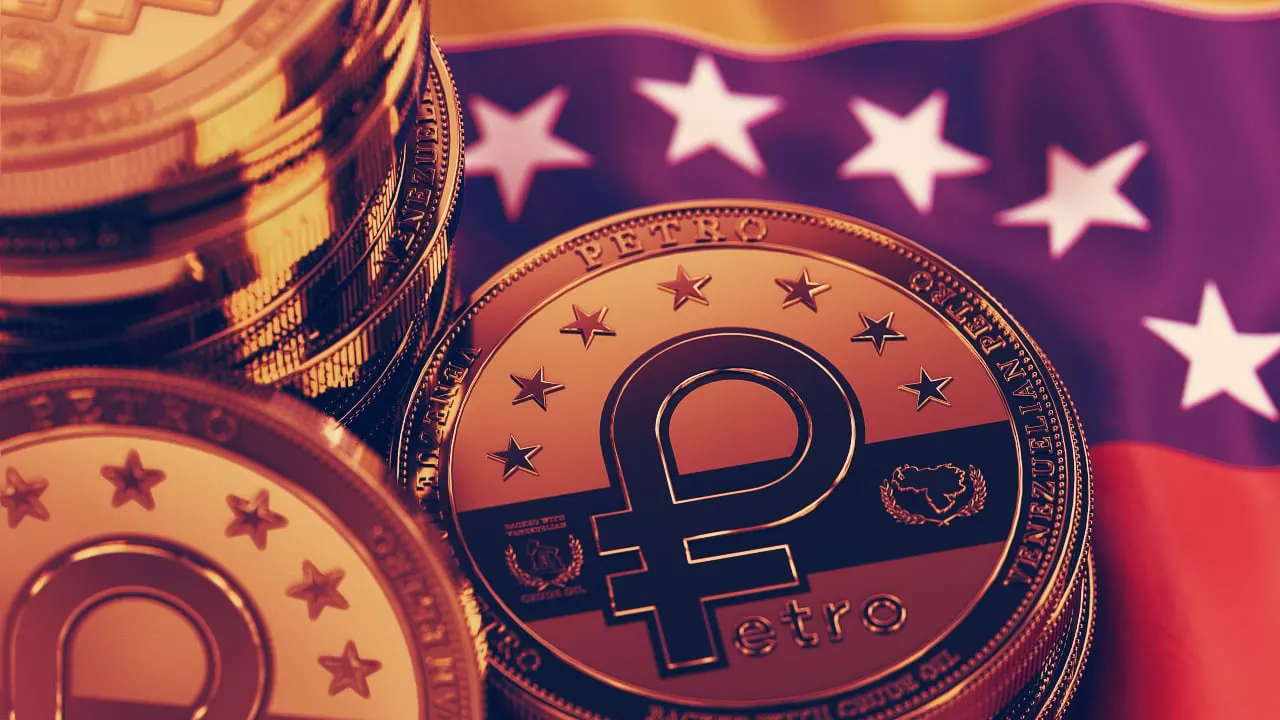“Comercios que recibieron petros no podrán reponer toda la mercancía vendida (II)”
.https://t.co/LtSaxIkqdI
.
.#Consecomercio #Gremio #ComerciantesyConsumidoresUnidosxVzla #CompromisoGremial
Vía: @DiarioTalCual pic.twitter.com/B95VjYA089— Consecomercio (@consecomercio) January 29, 2020
Coin Prices
BTC
$68,674.00
-2.33%ETH
$2,009.57
-5.12%XRP
$1.40
-3.70%BNB
$616.40
-3.43%USDC
$0.999833
-0.00%SOL
$82.47
-5.53%TRX
$0.278163
-0.19%DOGE
$0.092692
-3.83%FIGR_HELOC
$1.032
-0.14%WBT
$51.60
-3.08%BCH
$522.16
-1.98%ADA
$0.2615
-3.31%USDS
$0.999351
0.06%LEO
$8.73
2.76%HYPE
$29.48
-6.75%USDE
$0.998362
-0.03%CC
$0.169585
2.47%XMR
$335.42
1.21%LINK
$8.52
-4.05%USD1
$0.999858
-0.02%XLM
$0.157806
-2.00%LTC
$53.18
-2.88%PYUSD
$0.999905
0.02%HBAR
$0.090141
-2.94%ZEC
$230.12
-4.69%AVAX
$8.69
-4.22%SUI
$0.925
-4.28%SHIB
$0.000006
-2.10%RAIN
$0.0102977
-1.91%TON
$1.33
-2.68%CRO
$0.0783
-1.37%WLFI
$0.106691
-2.66%XAUT
$4,998.82
-0.91%M
$1.40
-1.84%PAXG
$5,026.48
-0.88%DOT
$1.27
-3.80%UNI
$3.34
-4.40%MNT
$0.628532
-2.92%BUIDL
$1.00
0.00%USDF
$0.996886
0.00%BGB
$2.41
-6.32%AAVE
$108.63
-3.82%ASTER
$0.649586
6.49%SKY
$0.069206
-2.44%OKB
$75.45
-1.12%USDG
$0.999832
0.01%USYC
$1.12
0.00%PEPE
$0.00000365
-4.06%HTX
$0.00000167
0.47%RLUSD
$0.999951
0.02%TAO
$153.40
-5.37%BFUSD
$0.999221
-0.01%ICP
$2.36
-2.87%ETC
$8.29
-4.01%NEAR
$0.991204
-4.18%PI
$0.13642
-3.94%ONDO
$0.246438
-2.06%GT
$6.92
-1.21%PUMP
$0.00192012
-5.38%WLD
$0.378193
-3.29%KCS
$8.02
-4.90%MYX
$5.53
-12.65%USDD
$0.999916
0.02%QNT
$68.87
-0.89%HASH
$0.01829858
-1.11%POL
$0.090971
-3.48%ATOM
$1.92
-2.66%ENA
$0.114298
-5.33%USDTB
$1.00
0.13%NEXO
$0.836059
-0.01%KAS
$0.03070668
-3.81%USTB
$10.99
0.03%ALGO
$0.091669
-4.64%FLR
$0.00951939
-1.58%NIGHT
$0.04811821
-4.09%TRUMP
$3.26
-3.74%APT
$0.984745
-6.32%JAAA
$1.026
0.01%EUTBL
$1.25
-0.17%OUSG
$114.25
0.01%XDC
$0.03509828
-2.57%USDY
$1.11
0.91%RENDER
$1.30
-3.85%FIL
$0.890596
-5.30%VET
$0.00769336
-3.37%ARB
$0.109366
-3.02%MORPHO
$1.14
-2.27%BDX
$0.080486
-0.10%USD0
$0.998804
0.39%JTRSY
$1.094
0.01%USDAI
$0.999586
-0.02%GHO
$1.00
0.02%BONK
$0.00000595
-4.64%A7A5
$0.0127481
-0.77%TUSD
$0.998274
-0.02%SEI
$0.072051
-3.46%FTN
$1.091
0.30%JUP
$0.14122
-8.15%EURC
$1.19
-0.15%STX
$0.254023
-4.08%DASH
$34.84
-4.13%CAKE
$1.32
-3.73%XTZ
$0.403567
-2.58%STABLE
$0.02347647
21.14%DCR
$24.11
-8.55%CHZ
$0.0396597
-2.32%IP
$1.15
-6.90%FDUSD
$0.998733
-0.01%OP
$0.181986
-4.11%PENGU
$0.00611212
-4.81%KAU
$160.69
-1.16%PIPPIN
$0.384231
38.35%JST
$0.04249019
-0.98%VIRTUAL
$0.561794
-2.33%LIT
$1.46
-5.36%CTM
$0.083123
-4.89%ZRO
$1.78
-1.76%FET
$0.156601
-3.18%RIVER
$17.50
29.30%CRV
$0.231278
-9.05%KITE
$0.189038
-1.01%BTT
$0.00000034
3.92%GNO
$124.85
-1.98%SUN
$0.01675802
0.20%SYRUP
$0.274451
-2.86%KAIA
$0.054101
-2.63%USR
$0.998683
-0.03%NFT
$0.00000031
-2.94%KAG
$81.56
-2.17%ETHFI
$0.432275
-5.06%INJ
$3.02
-4.72%USX
$0.999457
-0.00%CRVUSD
$1.002
0.53%IOTA
$0.067223
-3.37%LDO
$0.33824
-4.74%FLOKI
$0.00002965
-4.40%GRT
$0.02645229
-3.07%PRIME
$1.018
0.02%BSV
$13.98
-2.04%AERO
$0.303216
-3.62%TIA
$0.314956
-4.84%FRAX
$0.992529
0.02%H
$0.149723
-5.34%SPX
$0.290733
-2.68%JASMY
$0.00544105
-2.76%TEL
$0.00283118
-4.60%OHM
$17.12
-1.60%AXS
$1.56
8.18%ADI
$2.66
-1.34%PYTH
$0.04480611
-2.53%2Z
$0.073743
-11.28%ZK
$0.02127097
-6.60%UDS
$1.99
-10.41%USTBL
$1.074
0.01%STRK
$0.04629246
-4.99%AB
$0.00241478
3.03%CFX
$0.04573973
-2.72%BTSE
$1.44
3.35%SAND
$0.084868
-2.72%NUSD
$1.002
0.20%MON
$0.02033547
13.33%YLDS
$0.999834
-0.01%USDA
$0.984317
-0.38%AUSD
$0.999769
-0.01%WIF
$0.21531
-5.00%ENS
$5.62
-4.71%BCAP
$22.27
-0.80%TWT
$0.485613
-7.41%MWC
$18.29
0.06%ZBCN
$0.00204474
-6.48%THETA
$0.199846
-1.04%BAT
$0.13296
0.64%SENT
$0.02741797
3.33%BORG
$0.195938
-5.51%MANA
$0.099689
-1.91%VSN
$0.053198
-1.65%XCN
$0.00511993
-2.96%PC0000031
$1.00
0.00%APEPE
$0.0000009
2.71%ULTIMA
$4,998.50
-5.63%LUNC
$0.00003435
-1.68%GALA
$0.00396391
-3.47%BARD
$0.827304
-1.45%PENDLE
$1.13
-0.45%CUSD
$1.001
1.40%GLM
$0.185166
-3.31%FF
$0.078945
-1.16%FARTCOIN
$0.184382
-5.13%NEO
$2.61
-3.69%WFI
$2.31
-6.02%XPL
$0.080836
-3.17%FLUID
$2.22
-4.90%CVX
$1.83
-7.97%FDIT
$1.00
0.00%IUSD
$1.001
0.13%QRL
$2.11
6.79%MX
$1.80
-0.17%B
$0.164406
9.63%THBILL
$1.016
0.07%USDF
$0.997962
-0.00%REAL
$0.05235
-2.15%KOGE
$47.97
-0.00%SATUSD
$0.993837
0.15%COMP
$16.34
-3.64%RAY
$0.57751
-4.45%AWE
$0.079925
-1.38%XEC
$0.00000776
-2.06%EURS
$1.23
-1.58%S
$0.04013178
-2.81%TRAC
$0.335508
-2.71%GUSD
$0.999491
0.04%HNT
$0.802997
-2.90%WEMIX
$0.315334
0.05%SKR
$0.02485062
3.60%RUNE
$0.396907
-4.15%RLB
$0.07889
1.59%ACRED
$1,096.22
0.00%ZANO
$8.93
-2.15%BMX
$0.393951
0.06%1INCH
$0.094443
-4.45%LION
$0.00431261
-4.16%EGLD
$4.49
-1.88%SFP
$0.262925
-3.98%A
$0.080968
-2.42%AMP
$0.00155663
-2.42%SOSO
$0.471133
-0.57%IMX
$0.153465
-3.81%WAL
$0.079239
-3.59%GOMINING
$0.306932
-3.68%OZO
$0.130694
-0.25%BEAM
$0.00235942
-2.76%MF-ONE
$1.055
0.03%DUSD
$0.998522
0.02%PUSD
$1.002
-0.39%KTA
$0.246535
-2.24%AR
$1.83
-4.60%LPT
$2.39
-1.92%DOLA
$0.994866
-0.03%EIGEN
$0.197207
-3.55%MELANIA
$0.120939
-3.25%ICNT
$0.453765
6.36%EDU
$0.137847
-1.19%FRXUSD
$0.999991
0.02%APE
$0.124606
-3.19%KMNO
$0.02895524
-3.25%0G
$0.526362
-2.84%CCD
$0.00939042
-4.97%REUSD
$1.061
0.07%
